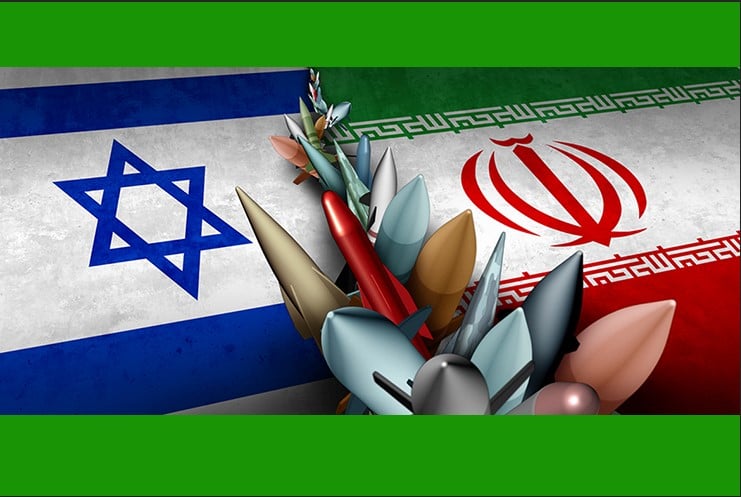On April 1 Israel bombed Iran’s consulate in Syria’s capital Damascus, killing Brigadier General Mohammad Reza and seven other senior officers of the Islamic Revolutionary Guard Corps (IRGC). This attack was widely seen as a game changer. It was an unprecedented act departing from the usual pattern of Israeli strikes against Hezbollah bases, supply routes, and arms depots in Syria. Instead of Iran’s affiliates, this time Israel attacked Iranian sovereign territory—its diplomatic mission—and directly targeted key Iranian military personnel. The killing of Iranian General Sayyed Razi Mousavi in Damascus last Dec. 25 may be seen, in retrospect, as the opening of a new phase in Israeli operational strategy.
Nevertheless, it would be naïve to assume that Israel’s Prime Minister Benjamin Netanyahu’s decision to order the attack was based solely, or even primarily, on military considerations. It will take the Iranians some time to reestablish their chain of command and control in Syria, and to make its key personnel less vulnerable to Israeli attacks, but it can and will be done.
Military operations always have political ends, and this is especially true in the Middle East. A paradigmatic example is the Oct. 7 Hamas attack on Israel, which—it now seems clear—had the objective of drawing Israel into a military operation in Gaza which has cost it dearly in political and diplomatic terms. To the planners of that savage attack, the subsequent enormous loss of Palestinian Arab lives was a price well worth paying.
It also stands to reason that the Israeli government ordered the attack on April 1 primarily to provoke a robust response from Tehran, and thus to draw attention from the ongoing operation in Gaza. The political objective, in other words, would be to prompt Iranian retaliation against Israel itself and consequently to regain some sympathy for the Jewish state in the outside world, which has been turning increasingly hostile to the IDF operation there. All along, the optimal outcome for Netanyahu would be an outright war, to justify his position in power and to stay out of jail, but also because he and the other hardliners have always wanted that war.
Iran was faced with a dilemma. Its leaders may be guided by a messianic, Shiite variety of Islam—which emphasizes willing martyrdom even more strongly than the orthodox Sunni canon—but in terms of day-to-day decision-making they are rational actors. They concluded that Iran had to provide a strong response to Israeli attack, or else risk losing credibility, primarily in the Islamic world, which it seeks to champion. Its standing was at stake especially among its allies and clients in Iraq (various Shiite radical groups), in Syria (the government itself), in Yemen (the Houthis), and especially in Lebanon, where Hezbollah is effectively the state within a state.
On the other hand, the government in Tehran does not want to provoke a wider war—which the Netanyahu government would welcome, especially if the United States gets drawn into it. Even if Israel alone responds with a sustained air and missile campaign, Iran is likely to suffer major damage to its military assets, nuclear reactors, and general infrastructure (especially oil refineries and terminals). Its sources of state power would be degraded for years to come.
It seems that Iran has carefully calibrated its response (possibly with prior U.S. approval) to create the impression of a bold and determined regional power showing its teeth. It decided not to launch drones and missiles in such numbers as to risk overwhelming Israel’s air defenses (the American, British, and French contributions were largely symbolic). If the reports are correct that that up to 300 drones and subsonic missiles were launched, but only a handful of supersonic ones—and no hypersonic Kheibar Shekan glide vehicles— hit their targets, then it is clear that Iran does not want an escalation. For the same reason the Iranian strikes were advertised well in advance.
The administration wants to prevent further escalation for geopolitical reasons of global import. It could lead, at some point, to Iran retaliating by the closure of the Straits of Hormuz with mines and land-based missiles. This is something the Persians can do: we have seen that even their infinitely weaker Yemeni clients have been able effectively to close the Red Sea.
The closure of the passage from the Persian Gulf into the Indian Ocean would have catastrophic consequences for the global economy, as there is no alternative route for the Saudi, Emirati, Iraqi, and Kuwaiti oil. This could also be detrimental to the Biden campaign as just a little over six months separates us from the presidential election. The line from Washington is that Israel has successfully repelled the attack and that its ostensible failure to inflict major damage is, in itself, sufficient to claim victory.
In the fullness of time Israel will probably retaliate in some limited form, but under American pressure it will calibrate its response so that it does not prompt an uncontrollable spiral of escalation. It is an even bet that Netanyahu will reluctantly agree to keep his response restrained: to satisfy his public opinion at home, with the destruction of a few missile launching sites perhaps, while at the same time not presenting Iran with a new challenge which would force the mullahs to up the ante. It seems that there will be a pause as the tension rachet returns to its (ab)normal state before tightening again in a few months.
It may not end well, and the finale is likely to be a minus-sum-game for all parties. When I was in Israel in 2020 some informed observers expressed concern that, in extremis, Iran’s sleeper cells may detonate dirty bombs—barrels of radioactive waste detonated by conventional explosives—in Israel’s urban centers, making them uninhabitable.
This is a tentative conclusion on the basis of open sources available to us at the time of writing. After all, the Middle East is—to appropriate Churchill’s description of Russia—“a riddle wrapped in a mystery inside an enigma.”

Leave a Reply